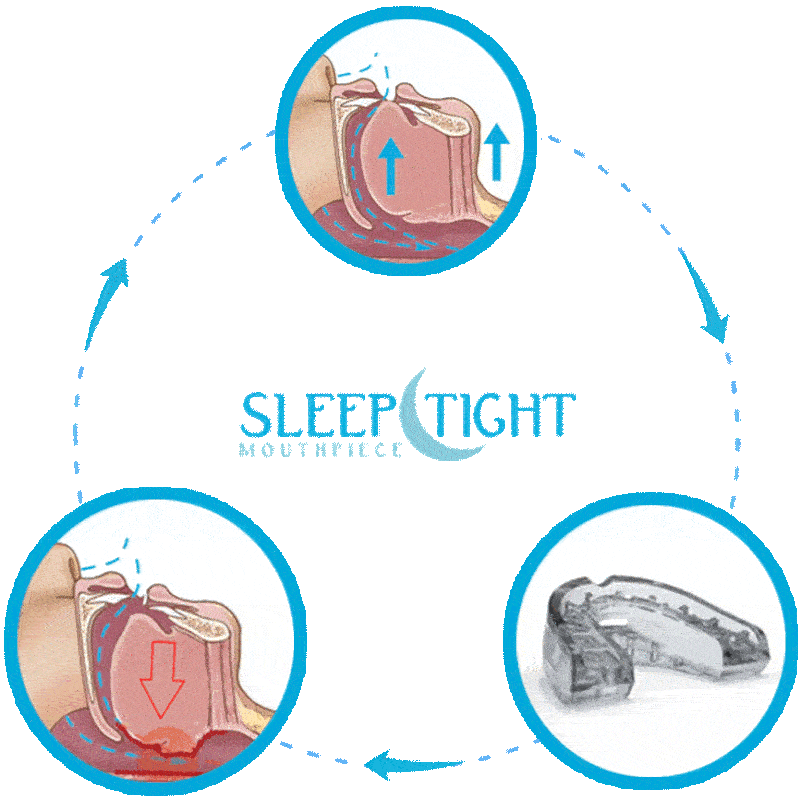Do you ever find yourself wondering why you snore and how you can make it stop? Snoring can be quite a nuisance, especially for those around you who are trying to get a good night’s sleep. But worry not, because in this article, we’ll delve into the reasons behind your snoring and explore some effective ways to put an end to it. So, if you’re ready to say goodbye to those restless nights, keep reading!
Snoring occurs when the flow of air through your mouth and nose is partially obstructed during sleep. This obstruction can be caused by various factors, such as the narrowing of your airway due to the relaxation of the muscles in your throat and tongue, or the presence of excess throat tissue. Furthermore, certain lifestyle habits, like smoking, drinking alcohol, and being overweight, can also contribute to snoring. Understanding the root cause of your snoring is essential in finding the most effective solution. In the upcoming sections, we’ll discuss some simple yet effective lifestyle changes and remedies that you can try to quiet the snores and improve the quality of your sleep. So, let’s get started and get you on your way to a snore-free night!

Understanding Snoring
Snoring is a common condition that affects many people, often causing disruptions in sleep patterns and leading to various health issues. In order to address the problem, it is important to first understand what snoring actually is, its causes, and the potential health risks associated with it.
What is snoring?
Snoring is the loud, vibrating sound that occurs when air flows through your throat as you breathe during sleep. This sound is caused by the narrowing of the airway, which creates resistance to the flow of air. As a result, the surrounding tissues vibrate, leading to the characteristic snoring noise. Snoring can vary in intensity, from soft and infrequent to loud and consistent throughout the night.
Causes of snoring
Snoring can be caused by a variety of factors, and understanding these causes is crucial in finding effective solutions. Some common causes of snoring include:
- Obesity: Excess weight can lead to the accumulation of fatty tissues in the throat, narrowing the airway and increasing the chances of snoring.
- Sleeping position: Sleeping on your back can cause the tongue and soft tissues in the throat to collapse, obstructing the airway and triggering snoring.
- Nasal congestion: Allergies, colds, or sinus infections can cause nasal congestion, leading to difficulty in breathing through the nose and resulting in snoring.
- Alcohol and sedatives: Consuming alcohol or taking sedatives before bed can relax the muscles in the throat, worsening snoring.
- Structural abnormalities: Some individuals may have structural abnormalities in the airway, such as enlarged tonsils, deviated septum, or a long soft palate, which can contribute to snoring.
Health risks associated with snoring
While snoring may seem like a harmless annoyance, it can have serious health implications over time. Some of the potential risks associated with chronic snoring include:
- Sleep disturbances: Snoring can disrupt your own sleep as well as the sleep of your partner. It can lead to fragmented sleep patterns, causing tiredness and decreased performance during the day.
- Cardiovascular problems: Chronic snoring has been linked to an increased risk of high blood pressure, heart disease, and stroke. The repeated interruption of airflow can strain the cardiovascular system.
- Daytime fatigue and decreased productivity: Poor sleep quality due to snoring can result in daytime fatigue, irritability, and reduced cognitive function. This can impact your productivity at work and overall quality of life.
Effects of Snoring
Understanding the effects of snoring is important in order to recognize the impact it can have on various aspects of your life. From sleep quality to relationships, snoring can pose significant challenges if left unaddressed.
Impact on sleep quality
Snoring can disrupt your sleep as well as that of your partner. The loud noise can cause frequent awakenings and sleep fragmentation, resulting in poor sleep quality. This can lead to excessive daytime sleepiness, difficulty concentrating, and decreased energy levels.
Relationship problems
Snoring can strain relationships, especially when it affects the sleep of your partner. The constant noise can lead to resentment, irritability, and even separate sleeping arrangements. It is important to address snoring in order to maintain healthy and harmonious relationships.
Daytime fatigue and decreased productivity
Poor sleep quality due to snoring can result in daytime fatigue, affecting your ability to concentrate and perform daily tasks. This can have a negative impact on your productivity at work or school and can significantly reduce your overall quality of life.

Diagnosing Snoring
Identifying the causes of snoring and determining the severity of the condition is crucial in order to find the most appropriate treatment options. Diagnosis usually involves a combination of self-assessment, medical examinations, and specialized sleep studies.
Symptoms to watch out for
If you or your partner suspect that you snore, there are specific symptoms to watch out for. These include:
- Loud and frequent snoring: Regular and loud snoring throughout the night is often a clear indication of a snoring problem.
- Gasping or choking sounds: If you experience intermittent gasping or choking sounds during sleep, it may be a sign of obstructive sleep apnea, a serious sleep disorder associated with snoring.
- Excessive daytime sleepiness: If you feel excessively tired during the day despite getting what you perceive to be enough sleep, it could be a result of poor sleep quality caused by snoring.
Medical examinations and tests
Consulting a healthcare professional is important for a proper diagnosis. During a medical examination, the doctor may ask about your medical history, sleep habits, and lifestyle factors that may contribute to snoring. They may also examine the mouth, throat, and nasal passages to look for any structural abnormalities.
Sleep studies
In some cases, a healthcare professional may recommend a sleep study, also known as a polysomnography. This involves spending a night in a sleep center where your breathing, brain activity, and other vital signs are monitored. A sleep study can help determine the severity of snoring and whether there are associated sleep disorders such as sleep apnea.
Treating Snoring
Once the causes and severity of snoring have been assessed, there are various treatment options available to help alleviate the problem. It is important to explore different approaches and find what works best for you.
Lifestyle changes
In many cases, making certain lifestyle changes can have a significant impact on reducing snoring. These changes may include:
- Weight management: Losing excess weight can help reduce the amount of fatty tissue in the throat, opening up the airway and reducing snoring.
- Sleeping positions: Sleeping on your side instead of your back can help prevent the collapse of the tongue and soft tissues in the throat, reducing snoring.
- Avoiding alcohol and sedatives: Avoiding the consumption of alcohol and sedatives before bed can prevent muscle relaxation in the throat, minimizing snoring.
Nasal strips and sprays
Nasal strips and sprays can help alleviate snoring caused by nasal congestion. Nasal strips work by opening up the nasal passages, improving airflow. Nasal sprays can help reduce inflammation and mucus in the nasal passages, making breathing easier.
Oral devices
Oral devices, such as mandibular advancement devices or tongue retaining devices, are designed to reposition the jaw or retain the tongue in a forward position. This helps to open up the airway and reduce snoring.
Continuous Positive Airway Pressure (CPAP)
For individuals with severe snoring or diagnosed sleep apnea, Continuous Positive Airway Pressure (CPAP) is often the recommended treatment. CPAP involves wearing a mask over the nose or mouth during sleep, which delivers a continuous flow of air pressure to keep the airway open.

Surgical Options for Snoring
In some cases, when lifestyle changes and other treatment options have failed to provide relief, surgery may be considered. Surgical procedures aim to correct any structural abnormalities in the airway that contribute to snoring.
Palate surgery
Palate surgery, also known as uvulopalatopharyngoplasty (UPPP), involves removing or reducing excess tissue in the throat, including the uvula and part of the soft palate. This widens the airway and reduces the likelihood of snoring.
Laser-assisted uvulopalatoplasty (LAUP)
Laser-assisted uvulopalatoplasty (LAUP) is a minimally invasive surgical procedure that uses lasers to remove or reshape excess tissue in the throat. This procedure can help to reduce snoring and improve airflow.
Radiofrequency ablation (RFA)
Radiofrequency ablation (RFA) is a relatively new procedure that involves the use of low-frequency radio waves to shrink and stiffen the soft tissues in the airway. This helps to reduce the intensity of snoring and improve sleep quality.
Alternative Remedies
In addition to medical treatments and surgical options, there are alternative remedies that some individuals have found to be helpful in reducing snoring. While the scientific evidence may be limited, these remedies may be worth exploring for some individuals.
Herbal remedies
Certain herbs, such as peppermint and eucalyptus, have natural decongestant properties that can help with nasal congestion and improve breathing. Herbal teas or essential oils containing these herbs may be used as a natural remedy for snoring.
Acupuncture
Acupuncture, a traditional Chinese medicine practice involving the insertion of thin needles into specific points on the body, has been suggested as a potential treatment for snoring. Some people claim that acupuncture helps to improve overall sleep quality and reduce snoring.
Homeopathic treatments
Homeopathy is a form of alternative medicine that uses diluted substances to stimulate the body’s healing response. Certain homeopathic remedies, such as Nux vomica or Sambucus, are believed to help reduce snoring by addressing underlying causes such as nasal congestion or alcohol consumption.
Mouth and throat exercises
Just as exercise can tone muscles in the body, specific exercises targeting the muscles in the mouth and throat can help strengthen them and reduce snoring. These exercises may include tongue and throat exercises, as well as playing wind instruments such as the didgeridoo.

Managing Snoring in Children
Snoring is not limited to adults; many children also experience snoring at some point in their lives. However, the causes and treatment options for pediatric snoring may differ from those of adults.
Causes specific to children
Some common causes of snoring in children include enlarged tonsils and adenoids, allergies, obesity, and certain medical conditions such as cleft palate or Down syndrome. Identifying the underlying cause is important in order to determine the most appropriate treatment approach.
Treatment options for children
Treatment options for pediatric snoring may include:
- Watchful waiting: In some cases, snoring in children may resolve on its own as they grow older. Regular monitoring and lifestyle modifications can help alleviate the problem.
- Surgery: In situations where snoring is caused by enlarged tonsils or adenoids, surgical removal may be recommended.
- Positive airway pressure therapy: Similar to CPAP for adults, positive airway pressure therapy may be considered for children with severe snoring or sleep apnea.
When to consult a doctor
If your child snores frequently, loudly, or experiences other symptoms such as gasping or choking during sleep, it is important to consult a doctor. Snoring in children may be an indication of an underlying sleep disorder or other medical conditions that require professional attention.
Importance of Sleep Hygiene
Maintaining good sleep hygiene is crucial in promoting healthy sleep patterns and reducing the likelihood of snoring. Incorporating certain practices into your bedtime routine can greatly improve sleep quality.
Establishing a regular sleep pattern
Going to bed and waking up at the same time every day helps regulate your body’s internal clock and promotes a more consistent sleep schedule. This can help reduce the likelihood of snoring and improve overall sleep quality.
Creating a conducive sleep environment
Ensure that your bedroom is dark, quiet, and at a comfortable temperature. Use comfortable bedding and invest in a supportive mattress and pillows to create an environment conducive to quality sleep.
Avoiding stimulating substances before bed
Limit or avoid the consumption of stimulants such as caffeine, nicotine, and alcohol, especially in the hours leading up to bedtime. These substances can interfere with sleep and contribute to snoring.

Seeking Medical Help
In many cases, snoring can be managed with lifestyle changes and self-care measures. However, there are situations where seeking medical help is necessary.
When to consult a healthcare professional
It is advisable to consult a healthcare professional if:
- Snoring is accompanied by symptoms of sleep apnea, such as excessive daytime sleepiness, gasping or choking during sleep, or pauses in breathing.
- Lifestyle changes and home remedies have not provided relief.
- Snoring is causing significant disruption to your sleep or the sleep of your partner.
- Snoring is associated with other health issues, such as high blood pressure or cardiovascular problems.
Choosing the right specialist
Depending on the severity and underlying causes of snoring, different healthcare professionals may be involved in your treatment. These may include otolaryngologists (ear, nose, and throat specialists), sleep medicine physicians, or dentists specializing in sleep-related disorders. Consulting the appropriate specialist will help ensure that you receive the most effective treatment for your specific needs.
Conclusion
Snoring is a common condition that can have significant implications on both your health and quality of life. Understanding the causes, effects, and treatment options for snoring is essential in order to find relief and improve overall sleep quality. By taking proactive steps, such as making lifestyle changes, exploring medical treatments, or seeking surgical options if necessary, you can address snoring and enjoy better sleep and improved well-being.



